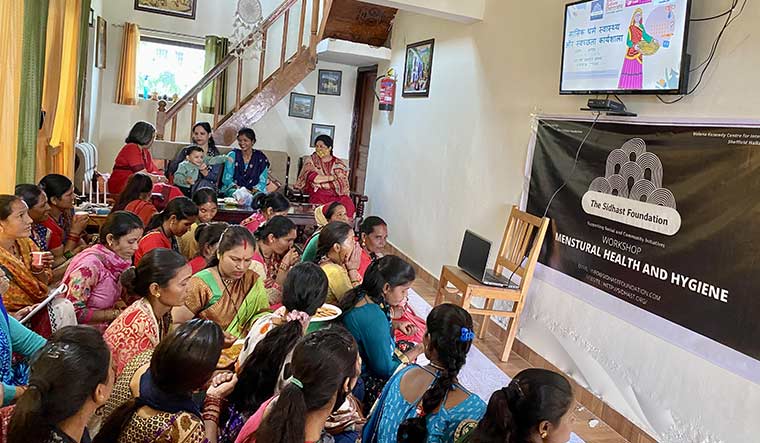MEN talking about women, and body shaming is reprehensible at best.
The stigma surrounding menstruation remains a significant challenge for women worldwide, with implications that stretch far beyond physical health. This stigma is not just about menstruation itself, but also about the broader cultural narratives that shape how it is perceived and discussed. Menstruation is often trivialized or even demonized, viewed as something inherently weakening or shameful. These perceptions can harm women’s mental and physical health, contributing to feelings of isolation, shame, and powerlessness.
The notion that menstruation is a taboo topic is one of the most damaging aspects of this stigma. For many young girls, there is little to no open discussion or education about menstruation before they experience it. This lack of communication fosters ignorance, perpetuates harmful myths, and inhibits the development of empathy and resilience. Girls often receive advice to remain silent about their periods, only discussing them with older female relatives in an attempt to shield them from potential embarrassment or ridicule from men. While this may seem protective, it ultimately perpetuates the silence and reinforces the shame associated with menstruation, leaving both girls and men ill-prepared to discuss the topic with maturity and understanding.
In many communities, menstruating women are socially ostracized, with some cultures insisting that they avoid routine activities, like household chores, to prevent "contaminating" others. This isolation can lead to a sense of powerlessness and diminishes the social standing of women. The cultural taboo against menstruation is so ingrained that it negatively impacts women's sense of self-worth and mental well-being.
Furthermore, the physical toll of menstruation is often dismissed. Many women experience pain, discomfort, and other health issues related to their periods, yet these are frequently overlooked or downplayed. The emotional and physical symptoms of menstruation are sometimes framed as irrational, contributing to the stereotype of women being unstable or overly emotional during their cycles.
In addition to these societal barriers, the lack of access to proper sanitary products and education, particularly in low-resource settings, exacerbates the situation. Period poverty, which refers to the financial, social, and political barriers preventing women from accessing menstrual products, is a significant problem. Without access to clean and safe menstrual hygiene products, many women and girls risk health complications, including reproductive tract infections. In some places, the absence of basic sanitary facilities means that girls miss school during their periods, which can amount to months of lost education every year. This perpetuates the cycle of gender inequality, as missed schooling reduces opportunities for girls to become self-reliant and delay marriage.
The silence around menstruation also inhibits efforts to implement effective public health initiatives. Without widespread education and open dialogue, misinformation and fear persist, further embedding the stigma. In many societies, these deep-seated cultural taboos, myths, and misconceptions around menstruation continue to contribute to the widespread belief that menstruating women are somehow "unclean" or less capable.
To break the cycle of stigma and its negative effects, comprehensive education and open conversations about menstruation are essential. Empowering women with knowledge about their bodies, menstrual health, and available resources is crucial. This will not only improve women’s physical health but will also foster greater social inclusion and equality. Educating both women and men is key to challenging harmful cultural narratives and building a more supportive, empathetic society where menstruation is regarded as a normal, natural process rather than a source of shame.
Menstruation should be encouraged to be recognized as key to being a healthy woman, and nothing to be ashamed of. It is certainly not a weakness, but a distinctive female characteristic that signals the ability to bring forth offspring. The need to conceal the blood may still exist out of consideration for the feelings of others, particularly younger people, who are often afraid of the sight of blood. Still, it should not be to hide the fact that one is menstruating.
Scientists and public figures should recognize and promote the fact that having a period is neither negative nor unnatural. The social construct responsible for such attitudes must be acknowledged and recognized to be the foundation for much oppression of women’s social status.
A celebration of what menstruation signifies physiologically—the continuing harmony of the brain and the ovaries to perpetuate the feminine hormone-driven reproductive physiology—would go a long way in casting out this negative construct and replacing it with one that values this deeply female experience, which is, in fact, essential to human reproduction.
Menstruation is a completely natural and universal phenomenon, associated with normal female reproduction. However, it is surrounded by stigma.

www.news-medical.net



